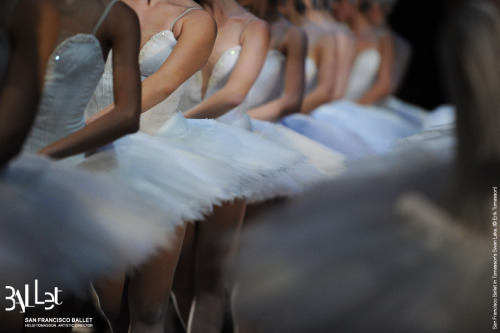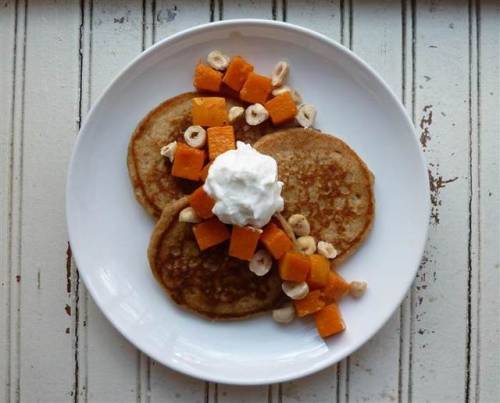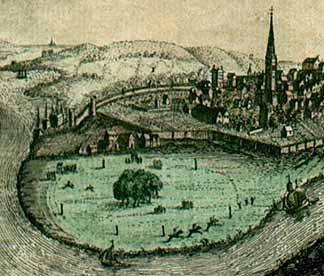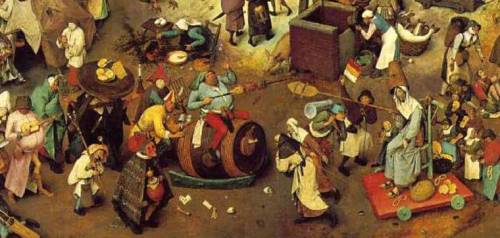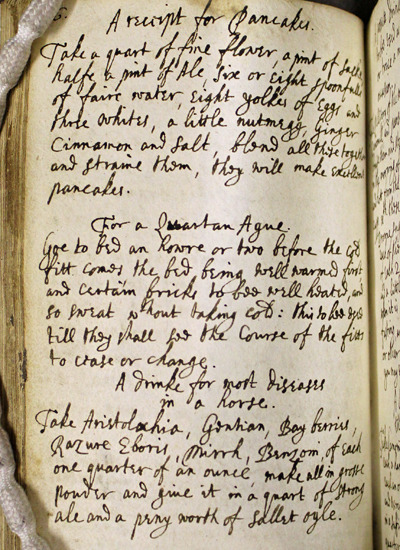#pancake day
Wait. If today is “Tutu Tuesday" but it’s alsoPancake Day… doesn’t that make it "Pancake Tutu Tuesday”?*
*That’s a short, stiff, bouncy tutu
Post link

it’s impossible to disappoint kaki
Today is »Shrove Tuesday«, called »Faschingsdienstag« in German or »Fettisdagen« in Swedish. It is the day before the lenten season begins.
Where do these three completely different names come from?
1st ENGLISCH:
The word »shrove« comes from the word »shrive«. Shrove Tuesday is the day of self-examination for many Christians. They check on what is wrong and how they can avoid this in the future. With God’s help they try to deal with it for the whole lenten season, which ends Eastern.
2nd GERMAN:
»Faschingsdienstag« means literally »Tuesday of carnival« and concludes the week of big carnival celebration at midnight. In some regions of Germany the day is also called »Fastnachtsdienstag« and means »Tuesday of fastening night«.
3rd SWEDISH:
»Fettisdagen« means literally »The Fat Tuesday« and stands for the permission to eat everything and as much as you like before the period of abstinence will start tomorrow.
Do you know the Semla? It is the traditional pastry that can be found everywhere in Sweden today and is eaten by millions.
Or do you want to find out more about the so called »fifth season Fasching« that will end in Germany today? Here you find some information and links.
Photo: Peter Maas (but slightly modified)
References:
http://en.wikipedia.org/wiki/Shrove_Tuesday
http://de.wikipedia.org/wiki/Fastnachtsdienstag
http://sv.wikipedia.org/wiki/Fettisdagen
Post link
It’s Shrove Tuesday, the day before Ash Wednesday, which starts 40 days of Lent. This also means it’s pancake day.
We’ve looked through the Bodleian Libraries’ collections for all of the ingredients needed for pancakes. Here’s what we found.
The egg comes from the Tudor Pattern Book [ MS. Ashmole 1504], a manuscript filled with inspiring illustrations that are meant be copied by other artists, the whole practice designed to keep traditions alive and well-seen.

The milk comes from the Curzon collection of material relating to Napoleon and the Napoleonic wars, and specifically this satirical political cartoon with a rather politically incorrect title.

The flour comes from the John Johnson collection of ephemera. This very colourful sample of real packaging dates back to the 1920s.

Enjoy your pancakes!
Why February 9th is BRILLIANT
It’s Got Bells On
On this day in 1539, the first horse race was held at Britain’s oldest surviving racecourse, the Roodee in Chester. Consent was given for the event by the mayor of the town, whose name was Henry Gee. This is thought to be the reason that horses are sometimes referred to as gee-gees. The prize for the fastest horse was a silver bell, or perhaps bells, to be worn on the bridle of the winner. A bit of casual research told us that the bell was worth 111 shillings and 1,111 pennies. This is a very weird way to write down a price, it would be easier to say £10 3s 7d. Then we found another source and it was written IIIs IIIId, so maybe it was three shillings and fourpence.
The race became an annual event, the value of the prize gradually increased and the race took place every Shrove Tuesday until 1609, when it was moved to St Georges Day. The first race was held to take the place of a previous Shrove Tuesday event in the town which had been banned in 1533. A quick glance at a calendar for the year 1539 though, tells us that February 9th was a Thursday. An annual football match was held on the Roodee. It was the sort of football match that was basically just a massive fight, between any number of people, to get a ball to one designated place or another. It was a popular Shrove Tuesday (also called Goteddsday) event which once took place all over the country. It has since been banned in most places, but pockets still survive. This is how it came to be banned in Chester:
“…upon Goteddsday at the Crosse upon the Rood Dee, before the Mayor of the Cittie did offer unto the company of Drapers an homage, a ball of leather, called a footeball, of the value of 3s 4d, which was played for by the Shoemakers and Saddlers to bring it to the house of the Mayor or either of the Sherriffs. Much harm was done, some having their bodies bruised and crushed, some their armes, heads, legges”.
This is far from being the only violent event that took place there. In 1441 there was a fight on the Roodee between gaolers from the castle and from Northgate. This was either a fight between two gaolers called Rockly and Rooley or a massive punch up amongst all the employees of the two establishments. We couldn’t find out what they were fighting about.
The Roodee was once part of the River Dee. The Romans built a port there, but over time it silted up and was reclaimed for the town. It gets its name from an ancient cross, a rood, that once stood on a mound in the middle of it. It is said to mark the site of a burial. Of a statue. There is a legend that in the year 946, there was a drought and Lady Trawst of Hawarden Castle, a little way down the river, went to church to pray for rain. Immediately, there followed a storm so terrible that, as she was leaving the church, a statue of the Virgin Mary was dislodged. It fell down and killed her. It seems the statue was put on trial for murder and, as it didn’t answer it’s accusers, was found guilty. Because it was a holy statue, they thought hanging it would be bad, so they thought drowning would be an appropriate punishment. It was carried away by the tide down to Chester where it was buried and a cross raised to mark the spot. Part of the cross can still be seen on the racecourse, but it has been moved from its original position. We have no idea what became of the statue.
Unlike February 9th 1539, today actually is Shrove Tuesday or if you like Mardi Gras (Fat Tuesday), so we thought we’d have a bit of a look at that too. Apart from the obvious pancakes, which are all about us having a nice meal before the start of Lent tomorrow, the celebrations associated with it are all pretty violent. There are the football games that we mentioned before, which are also known appropriately as ‘mob football’. They were popular throughout Europe, but particularly in England and date back to at least the twelfth century. Hens and cockerels were also in for a particularly hard time in years gone by. The sport of cock fighting was popular, so much so in Chester, that it sometimes delayed the start of the horse race. A particularly horrible game was to tie a up a cockerel and throw things at it, like you would at a coconut shy. Any hen that had failed to lay an egg by Shrove Tuesday also risked being beaten to death. Or perhaps even worse used in a game where it was tied to someone’s back along with a few bells. The other players would be blindfolded and given sticks. They had to try to hit the hen. It was a game that didn’t go well for either the hen or the person carrying it.
We’re quite glad that the pancakes have been the main survivor out of all of these traditions. Fairly close to where we live in Scarborough, they make quite a thing of Pancake Day. There is a special Pancake Bell in the town, which is rung at noon. There are pancake races, where people have to run whilst tossing a pancake in a frying pan. Oddly there is also skipping. All the school children get half a day off school. Pancake Bells used, at one time, to be rung all over the country. They signalled the beginning of an official half day holiday for everyone. John Taylor, the Water Poet, who we wrote about back in August, tells us that the holiday started when the Pancake Bell struck eleven. But if you had the right person in charge of ringing it, that was usually some time before nine o'clock.
Post link
Take a quart of fine flower, a pint of sacke, halfe a pint of ale, six or eight spoonfulls of faire water, eight yolkes of eggs and three whites, a little nutmegg, ginger, cinnamon and salt, blend all these together and straine them, they will make excellent pancakes.
Historical pancake recipes from the archives of the Royal College of Physicians, London.
Post link
Really… everyday should be a pancake day. Try a lemon spiced crème anglaise with blueberries for an extra flavor boost!
Post link

